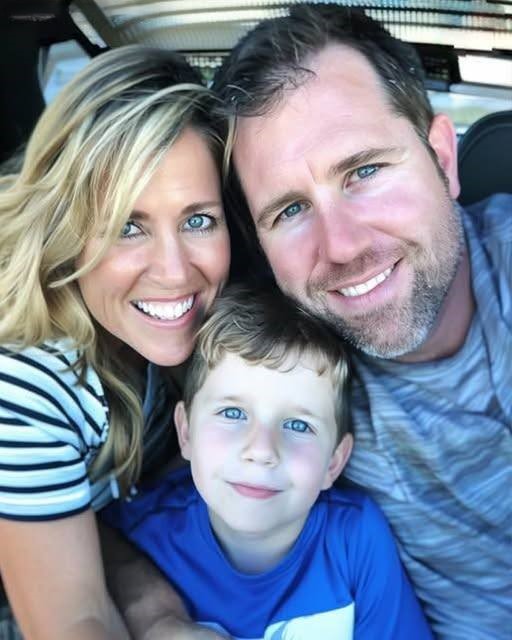
When we adopted Bobby, he was five years old, silent, and withdrawn. His big brown eyes carried more weight than any child should have to bear. We were told he didn’t speak. Trauma, they said. Grief. Loss. The foster home had informed us that his parents had died in a tragic accident. No relatives had stepped forward. No one had claimed him.
We brought him home hoping love would do what therapy hadn’t. The early days were quiet. He played alone. He slept with the lights on. He never cried, never laughed, never spoke a word.
Then came his sixth birthday.
We lit the candles on a small cake and gently sang. Bobby sat quietly, looking at the flame. And when it came time to make a wish, he closed his eyes, leaned forward, blew out the candles—and said, in a soft, trembling voice, “My parents are alive.”
Five words. Five impossible words. My heart dropped.
We exchanged stunned glances. It had been a full year since we’d brought him home. He had never spoken before. Now, not only was he talking, but what he said unraveled everything we believed to be true.
The next day, we called the foster agency. Pressed for answers. At first, they denied any mistake. But the more we pushed, the shakier their story became—until someone finally admitted the truth: Bobby’s biological parents weren’t dead. They were alive. Wealthy. And they had paid to have their names removed from official records. When Bobby became seriously ill as a toddler, they decided they couldn’t handle the burden and left him at the hospital—never looking back.
We were heartbroken. Angry. Confused. But most of all, we were worried for Bobby.
We sat him down and gently asked what he remembered. His response broke us in half. “They said I was too sick. So they left. But I still love them. I just wanted to know why.”
Despite every instinct to protect him from more pain, we knew what we had to do. We arranged a meeting.
The day was cold. Quiet. Bobby wore the little blue jacket we’d bought him when he first came to us. His hands shook. When his birth parents arrived, they looked uncomfortable, unsure, even guilty. They didn’t expect to face a child who remembered. Or one who had found his voice.
“I remember you,” Bobby said calmly. “You didn’t say goodbye.”
His mother began to cry. His father stared at the ground. They admitted they were overwhelmed, that they hadn’t known what to do. They said they thought it was the “best option.”
“I think you didn’t even try,” Bobby replied. And then he turned to us. “I want to stay with you.”
That moment changed everything.
From that day forward, Bobby’s voice returned—and so did his smile. Slowly, he began to laugh. He asked questions. He told stories. He ran into our arms instead of hiding in corners.
He no longer just lived in our home—he belonged in it.
He wasn’t just our adopted son. He was our family. Fully, completely, and by choice—from both sides.
We had chosen him. But more importantly, he had chosen us.
And there is no greater bond than that.
